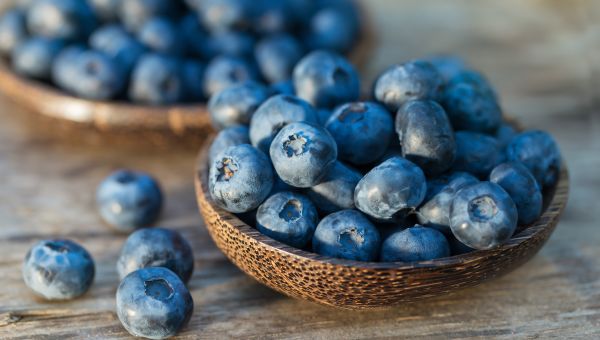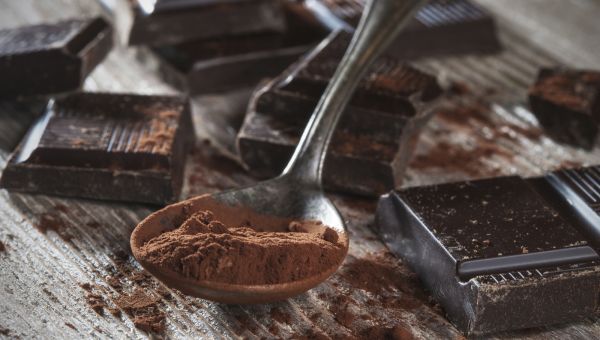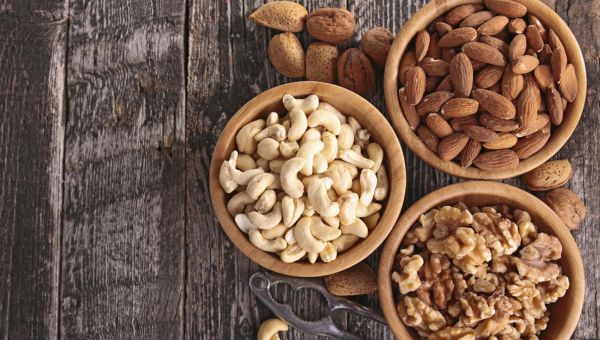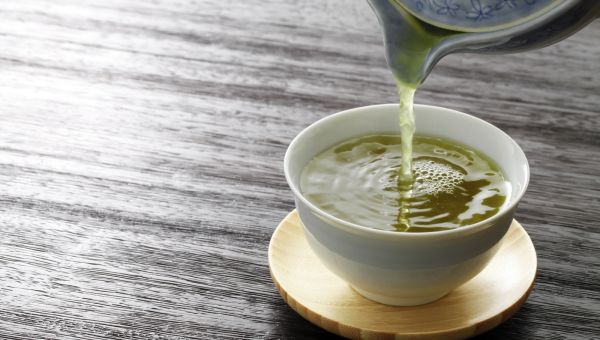4 foods your brain will love
Nourish yourself for better brainpower.
Updated on June 6, 2024

Eating a wholesome, balanced diet can power your body, lower your risk of chronic disease, and help you maintain a healthy weight. But those aren’t the only reasons you should focus on nutritious foods. They may be able to boost your brainpower, too.
“I always advise people to eat around the color wheel, which supports not only body health, but mind health,” says Tanzila Kulman, MD, a neurologist in Baltimore. “There's no one food that is the answer, but you have to educate yourself and read labels.”
With that in mind, here are a few delicious, easy-to-find foods for potentially better brain function.

Blueberries
Blueberries aren't just a good muffin ingredient—many studies suggest they may help protect against age-related brain changes, like cognitive decline. Cognition is your ability to learn, understand, and think. When your cognition declines, these functions don’t work as well as they should.
For example, a small 2022 clinical trial published in the journal Nutrients looked at overweight adults from ages 50 to 65 with cognitive decline. After 12 weeks, those who regularly supplemented with blueberry powder had improvements in functions like memory and self-control.
“Blueberries are packed with antioxidants, [compounds that] support brain health and one’s overall cognitive abilities,” says Dr. Kulman. Antioxidants may help by neutralizing free radicals. These are unstable molecules that cause most of the damage in the aging process.
“Free radical buildup causes aging at the cellular level in all your organs including your brain cells,” Kulman explains.

Dark Chocolate
Flavanols are a group of plant compounds linked to:
- Lower blood pressure
- Blood clot prevention
- Reduced cognitive decline
- Improved brain performance
In some studies, cocoa flavanols found in dark chocolate have been connected with improved thinking skills. These studies have involved both healthy adults and older adults with mild cognitive impairment.
Scientists are still trying to understand how flavanols affect cognition. But some believe they may help boost blood flow to the brain. They may also work to protect against free radicals.
Instead of milk or white chocolate, try dark chocolate. It's your best bet due to its high cocoa content. Since store-bought chocolate tends to be high in added sugar and saturated fat, limit yourself to 1 ounce per day.

Nuts
Nuts such as pecans, walnuts, almonds, and peanuts are loaded with protein, vitamins, and minerals. These nutrients can benefit your overall health. But walnuts especially are also good sources of omega-3 fatty acids. Getting enough omega-3s is often linked to improved cognitive function.
Why? Omega-3s (DHA mainly) help your nerve cells (neurons) work. They help neurons transmit signals to the rest of the body. They are also needed for neuron growth and plasticity, or the ability to adapt to changes. Omega-3s may even protect against age-related changes.
Your body doesn’t produce enough omega-3s on its own. You need to get them through diet. Try to eat 1 small handful of nuts each day. For walnuts, that comes out to 12 to 14 halves.
“One trick is to always keep your nuts in the freezer so those omega-3 fatty acids don't spoil and go rancid in the cupboard,” Kulman advises.

Green Tea
Green tea has been used in Asia for centuries as medicine. Once you learn about the potential brain benefits, you may want to start sipping, too.
- A 2021 review in the journal Molecules concluded that drinking green tea daily could help slow age-related cognitive decline.
- A 2020 study from the same journal found that a compound in green tea was linked to an improvement in memory and attention tasks.
- Another review, published in 2017 in Phytomedicine, found that regular intake may boost memory, attention, and brain function.
Green tea’s benefits may be due to its caffeine content, as well as its rich supply of flavonoids and antioxidants. Drinking it may also benefit your heart health—which in turn, helps protect your brain. Some studies suggest a regular cup or two of green tea can help improve blood pressure and cholesterol.

Foods to Avoid
To help protect your brain health, limit or avoid eating foods that are high in added sugar, such as packaged snacks and soda. Not only do these items promote inflammation, they can cause insulin levels in your blood to spike. In the short term, this may cause “brain fog.” Over time, these repetitive spikes can lead to diabetes, which damages tiny blood vessels in the brain and can contribute to dementia.

Kalt W, Cassidy A, Howard LR, et al. Recent Research on the Health Benefits of Blueberries and Their Anthocyanins. Adv Nutr. 2020 Mar 1;11(2):224-236.
Cheatham CL, Canipe III LG, Milsap G, et al. Six-month intervention with wild blueberries improved speed of processing in mild cognitive decline: a double-blind, placebo-controlled, randomized clinical trial. Nutritional Neuroscience. 2022.
Krikorian R, Shidler MD, Nash TA, et al. Blueberry supplementation improves memory in older adults. J Agric Food Chem. 2010 Apr 14;58(7):3996-4000.
Krikorian R, Skelton MR, Summer SS, et al. Blueberry Supplementation in Midlife for Dementia Risk Reduction. Nutrients. 2022 Apr 13;14(8):1619.
Harvard Health Publishing. A flavanol-rich diet may increase brain function. March 1, 2021.
Socci V, Tempesta D, Desideri G, De Gennaro L, Ferrara M. Enhancing Human Cognition with Cocoa Flavonoids. Front Nutr. 2017 May 16;4:19.
Maaliki D, Shaito AA, et al. Flavonoids in hypertension: a brief review of the underlying mechanisms. Current Opinion in Pharmacology. April 2019. Volume 45, pp 57-65.
Kozłowska A, Szostak-Węgierek D. Targeting Cardiovascular Diseases by Flavonols: An Update. Nutrients. 2022 Mar 30;14(7):1439.
Gratton G, Weaver SR, Burley CV, et al. Dietary flavanols improve cerebral cortical oxygenation and cognition in healthy adults. Sci Rep. 2020 Nov 24;10(1):19409.
Desideri G, Kwik-Uribe C, et al. Benefits in Cognitive Function, Blood Pressure, and Insulin Resistance Through Cocoa Flavanol Consumption in Elderly Subjects With Mild Cognitive Impairment. Hypertension. 2012;60:794–801.
Calabrò RS, De Cola MC, Gervasi G, et al. The Efficacy of Cocoa Polyphenols in the Treatment of Mild Cognitive Impairment: A Retrospective Study. Medicina (Kaunas). 2019 May 17;55(5):156.
Chauhan A, Chauhan V. Beneficial Effects of Walnuts on Cognition and Brain Health. Nutrients. 2020 Feb 20;12(2):550.
Kathy Beerman. Can walnut consumption benefit brain health? American Society for Nutrition. January 16, 2020.
Cutuli D. Functional and Structural Benefits Induced by Omega-3 Polyunsaturated Fatty Acids During Aging. Curr Neuropharmacol. 2017;15(4):534-542.
NIH: Office of Dietary Supplements. Omega-3 Fatty Acids. July 18, 2022.
NIH: National Center for Complementary and Integrative Health. Green Tea. Last updated October 2020.
Unno K, Nakamura Y. Green Tea Suppresses Brain Aging. Molecules. 2021 Aug 12;26(16):4897.
Mancini E, Beglinger C, Drewe J, et al. Green tea effects on cognition, mood and human brain function: A systematic review. Phytomedicine. 2017 Oct 15;34:26-37.
Baba Y, Inagaki S, Nakagawa S, Kaneko T, et al. Effect of Daily Intake of Green Tea Catechins on Cognitive Function in Middle-Aged and Older Subjects: A Randomized, Placebo-Controlled Study. Molecules. 2020 Sep 17;25(18):4265.
Xu R, Yang K, Ding J, Chen G. Effect of green tea supplementation on blood pressure: A systematic review and meta-analysis of randomized controlled trials. Medicine (Baltimore). 2020 Feb;99(6):e19047.
Xu, R., Yang, K., Li, S. et al. Effect of green tea consumption on blood lipids: a systematic review and meta-analysis of randomized controlled trials. Nutr J 19, 48 (2020).
Harvard Health Publishing. Nutritional psychiatry: Your brain on food. September 18, 2022.
Harvard Medical School. Sugar and the Brain. Spring 2016.
Alzheimer’s Society. Diabetes and the Risk of Dementia. Reviewed December 2023.
Mayo Clinic. Vascular Dementia. July 29, 2021.
More On


video

article

slideshow


video


video
